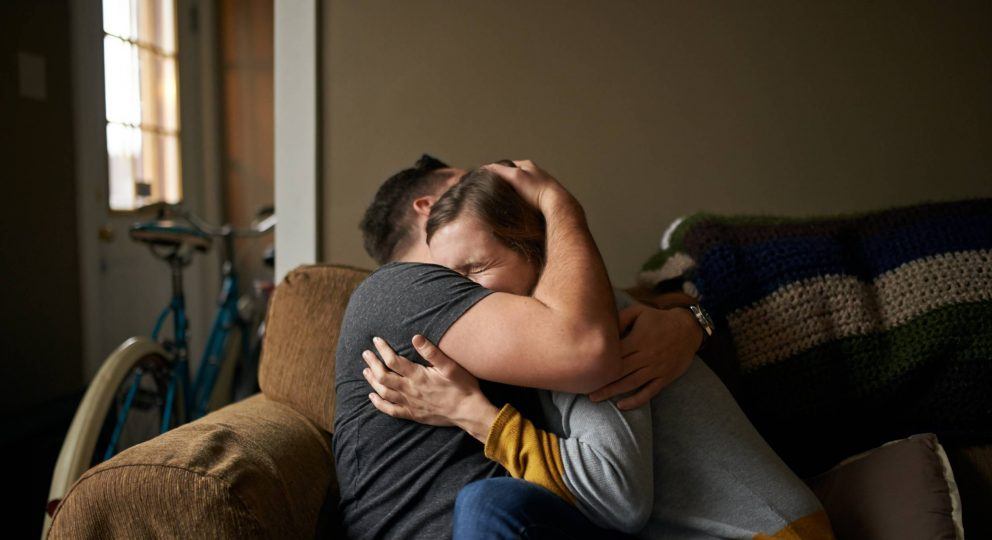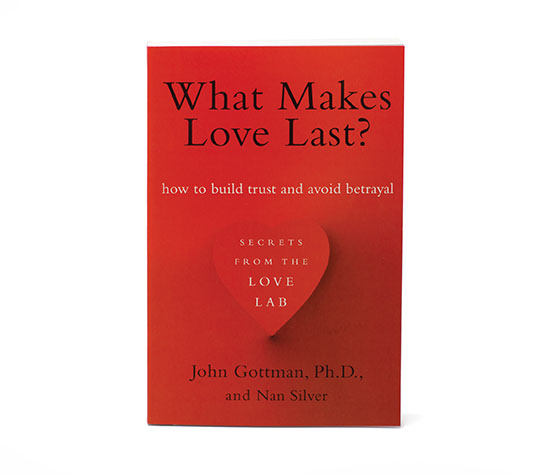Mary and George* have been together for three years. George is struggling with alcohol, cocaine, gambling, and sex addiction. Mary was only aware of his drinking problem until very recently when she discovered they couldn’t go on their summer vacation because George spent their money on gambling. She also found text messages from his friends about their recent trip mentioning being high on cocaine, names of women, and massage parlors. She then found inappropriate sexual emails with images sent to other women on his computer, as well as many interactive porn site subscriptions. This made sense to her because for quite some time now, she’d been sensing that something was wrong.
George was distant towards her, he would come home late then spend time alone in his office on his computer. He had a group of friends she didn’t know that well and she wasn’t included often because it was “time with the boys,” so she let him have that time. Since George was in charge of their finances, she didn’t understand why they seemed to never have money to go on dates. George would get stressed out if she brought this up so Mary would keep it in. Mary was resentful that they weren’t spending quality time together and was suspicious of George’s behavior. However, George kept denying that anything was wrong and kept telling her that she was being “paranoid,” and had to work on herself because she had “trust issues.”
Upon entering a treatment center, George starts working on himself and starts attending 12 step meetings. Mary initially receives a telephone call from George’s treatment team giving her general information that George is doing well and suggesting she start attending Al-Anon meetings to work on her own issues of codependency.
Mary wants George to recover but she’s been struggling herself since the discovery. She’s angry, sad, can’t sleep, is constantly anxious, hypervigilant, and has obsessive and intrusive thoughts about what else she doesn’t know about George. She feels insecure, wondering why she’s being told to look at her own contribution to George’s addiction when he’s the one who has lied to her. She’s questioning everything. She is wondering if she even knows George, if he loves her still or ever loved her. She starts trying to make sense of her reality by doing “detective” work and asking George every chance she gets questions about what he was doing and where he was on different days, why he started using cocaine, who he was using with, how much money was spent and where, who were the women mentioned in the messages, etc.
All these questions further upset George who tells her he’s trying to work on himself and needs space. Their relationship keeps getting more distant, critical and cold. After treatment, George will have to return home to his family life. And while he has been growing individually in recovery, their relationship is still in a dark place. Often times this leads to relapses and more relationship conflict. Sometimes, the relationship does not survive.
No, it’s not always codependency
Codependency refers to enabling and controlling behaviors, poor boundaries, lack of self-care, and focusing on other’s needs instead of one’s own needs. And while the teaching of codependency can be immensely helpful in dealing with individuals who have a chronic pattern of these traits, labeling every partner of an addict as “codependent” is damaging. It implies that there is something wrong with the codependent person because they have been impacted by a person struggling with addiction. Experiencing trauma reactions such as hypervigilance, increased anxiety and depression, re-experiencing the event, emotional numbing, need to control, irritability, etc. as a result of a loved one’s addiction and behavior is not codependency.
In his book, “Transcending Post-Infidelity Stress Disorder,” Dennis Ortman, Ph.D., explains how these symptoms are normal reactions to an extraordinary event, a discovery of a partner’s lies and betrayal. He further explains that the word trauma means “wound,” and the betrayed partner has been wounded to the core of his/her being by their partner’s betrayal of trust.
Sadly, partners of individuals struggling with substance or behavioral addictions often get assigned the label “codependent.” Sometimes the hypervigilance and controlling behaviors of the partner are related more to re-experiencing traumatic feelings triggered by memories from the effects of their partner’s addiction. Therapy should always be trauma-informed. Instead of labeling someone “codependent,” it’s important to recognize that these are normal reactions to trauma and not psychopathology.
Betrayal trauma
What Mary is experiencing is betrayal trauma. She is ruminating about the past, trying to make sense of the present, going over and over in her mind wondering why, where and how these problems started. These are all indicators of the same post-traumatic stress disorder that soldiers experience, even though the trauma is very different here. Research by Shirley Glass confirms that these symptoms are present after the discovery of an affair. Discovery of other types of betrayal can have the same effect. In his book, “What Makes Love Last?” Dr. John Gottman identifies other forms of betrayal that can be just as damaging as an affair, but oftentimes go unrecognized. The list includes lying, absenteeism and coldness, withdrawal of sexual interest, disrespect, and breaking promises, among others. I encourage you to think about how many of these forms of betrayal are present during active addiction. Possibly all of them and more.
Our brains are wired to keep us safe, to detect danger and send us warning signals. What is often labeled as codependency is actually our brain trying to look for safety and make sense of our reality. In his book, “The Body Keeps the Score,” Bessel Van Der Kolk talks about how after going though trauma the environment of the individual is experienced with a different nervous system. One that detects danger everywhere and is constantly on high alert. The survivor’s energy becomes focused on suppressing the internal chaos. When triggered, the right brain’s amygdala, which is in charge of processing emotional responses, makes a very quick decision to begin the fight-or-flight response. This is a physiological reaction that happens when there’s a perceived danger. The amygdala’s danger signals trigger the release of stress hormones such as adrenaline and cortisol. This increases one’s heart rate, blood pressure, and breathing, preparing us to fight or run.
Even if the addict is no longer using substances or engaging in the addictive behavior, any small trigger (minor change in addict’s behavior, people, places and things that remind a partner of the trauma) can be misinterpreted as dangerous for the partner. Meanwhile, the left hippocampus that is in charge of consolidating memories is trying to make sense of life’s timeline. The new information that Mary received does not fit with what she knows to be true about George and her relationship with him. She thought he was trustworthy. He would never take money out of their account to buy drugs, go to massage parlors and gamble. But yet he did. The facts are there. She saw the messages.
When the brain confronts two opposite realities at the same time, the hippocampus rewrites history so that it can make sense. What’s worse is that the happy memories are now tinted. Mary remembers their many trips to Las Vegas where she was happy with George. But now those memories are tinted because Mary’s brain includes new information that doesn’t fit with what she knew. Looking back at their happy photos, she is wondering where George went after she went to bed and he wanted to continue “spending time with the boys.”
Eric Erikson, a well-known American psychologist whose work is now considered a classic, wrote about human development. He identified different stages that human beings go through to achieve maturity. Each stage must be completed successfully and is a building block for the next challenge and the next stage. Failure to overcome a challenge of any stage results in a weakness in the foundation of one’s personality. The first stage of human growth that he identified is trust vs. mistrust. This is the foundation on which a person’s personality develops. Believing in the trustworthiness of oneself and others creates openness to relationships, love, and growth. Mistrust shatters the sense of personal safety needed to engage in an intimate relationship. From this perspective, it is easy to understand why Mary would not be comfortable in a relationship where her trust has been broken. Betrayal trauma hits the foundation of the person and the relationship. Discovering that the person you trusted with your heart lied to you leads to questioning everything, including one’s identity. It affects one’s self-esteem, perception of reality, and safety of the relationship.
Couples work is healing for both partners
Most often, couples work is delayed due to the fear that the recovering addict won’t be able to focus on their own treatment. And while there are situations where it makes sense to focus only on an addict’s individual recovery—domestic violence or one partner’s lack of desire to work on recovery—focusing on the relationship early benefits both partners. Contrary to the common belief that couples work is contraindicated in early recovery, there are no empirical studies that actually support this position. In fact, research suggests that healthy relationships are one of the strongest predictors of long-term sobriety. Humphreys, Moos, and Cohen (1997) conducted a study to determine what predicted successful long-term recovery after treatment and found that positive family relationships are one of the best predictors.
Couples therapy early on helps process betrayal trauma by disclosing all the lies and secrets so healing can start to take place. Often, partners don’t know what is true and what is not true anymore. While this may be difficult for the recovering addict, they must learn to tolerate it and understand the impact of their betrayal and the posttraumatic stress that it’s caused. Ongoing suspicion is not a hindrance to healing. It is also not “controlling.” The betrayed partner requires reassurance and transparency. The recovering addict needs to practice honesty and have accountability. Couples therapy helps to slowly start building trust again, set boundaries, manage conflict, understand how to achieve a healthy relationship and intimacy, support each other without taking on another’s individual work, and differentiate between healthy interdependency and unhealthy codependency. So supporting each other’s recovery is not “codependent” when partners learn to verbalize individual needs and relationship needs without blaming, playing the victim role or having one partner take on all the responsibility.
Individuals struggling with addiction enter a difficult but courageous journey when they decide to be in recovery. But it doesn’t need to exclude their partners. Couples in recovery can heal from their traumas together and create a new, improved relationship that’s supportive and loving.
*Mary and George are fictional characters created to demonstrate what often happens with couples where one partner is struggling with addiction.








